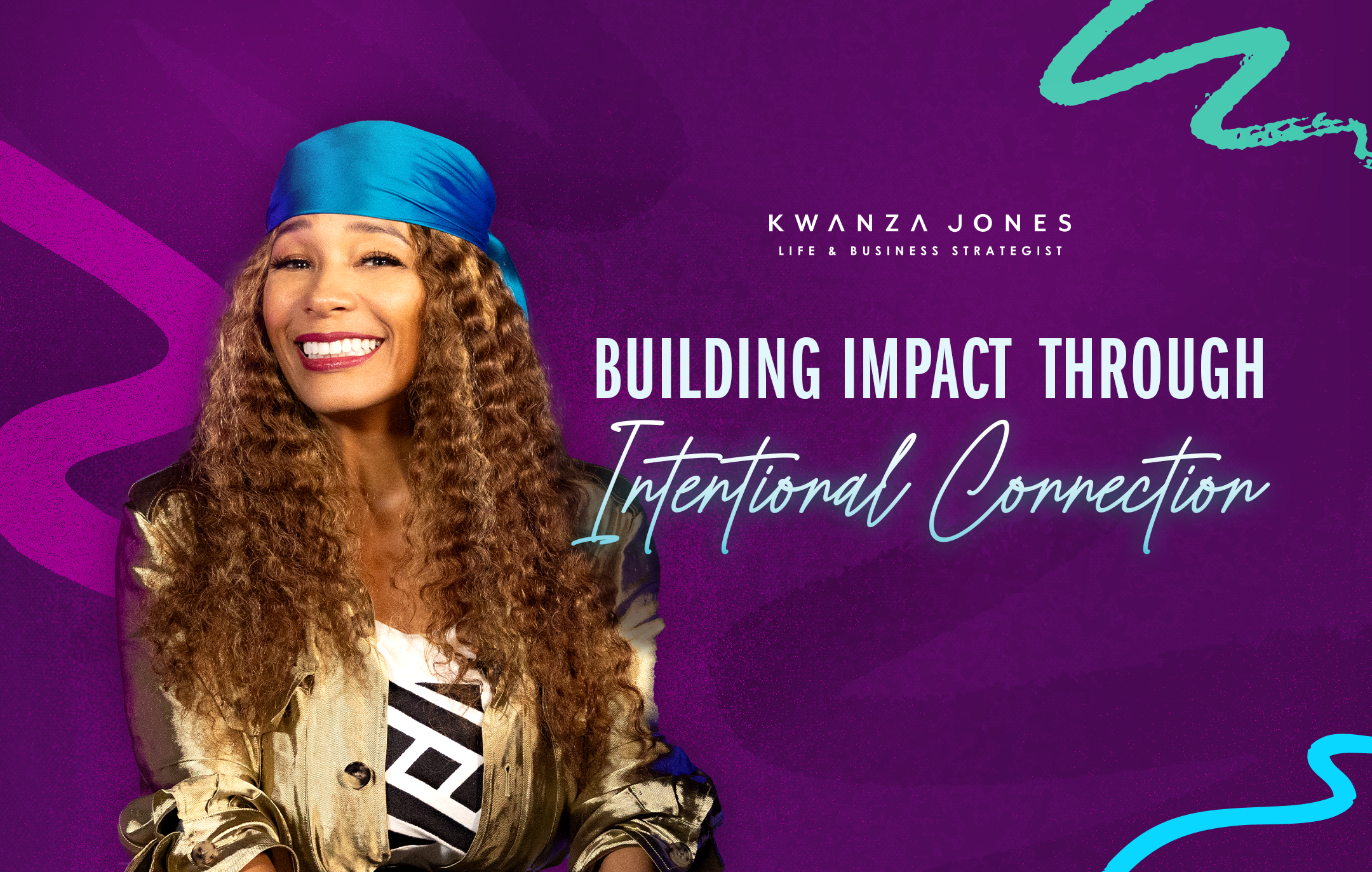Advancing Women’s Financial Independence
By Team Kwanza Jones

Fifty years ago, walking into a bank and applying for a credit card on your own wasn’t a bold move, it was an impossible one. No matter how smart, capable, or qualified you were, if you were a woman, the answer was often the same: Get your husband, father, or brother to sign for you.
Let that sink in. Fifty years. That’s not ancient history, that’s within a single lifetime.
In 1974, everything shifted with the Equal Credit Opportunity Act (ECOA). For the first time, it became illegal for creditors to discriminate based on gender or marital status. It was a breakthrough for access. But that was only the first step.
For too long, women’s access to credit, capital, and opportunity was locked behind closed doors. Today, it’s no longer about waiting for permission. It’s about making power moves, building ownership, and creating systems where women thrive.
From Access to Ownership
Having the right to borrow or participate in financial systems doesn’t guarantee independence. True independence can only be achieved when women take that access and flip it into ownership, decision-making power, and influence. Access opens the door, but ownership makes sure you stay in.
The Queen of energy, Kwanza Jones, experienced this firsthand. Her first credit card wasn’t about indulgence, it was about creating options. From that first step into credit, to her first investments, she treated capital as a tool, not a trophy. That mindset became the foundation of her work to advance women and people of color from access to ownership.
Turning Barriers Into Pathways
The road to advancing financial independence requires resilience. But resilience isn’t built in comfort. It’s tested in moments of exclusion. Like the time when Kwanza and her partner in business and life, José, were turned away from a donor event despite having made a significant donation. They could have walked away. But silence doesn’t create change. So, they transformed exclusion into action, fueling a $20 million gift that built more belonging and opportunities for underrepresented students at Princeton University.
Their move created pathways where none existed and showed that barriers can become bridges when you’re bold enough to act.
Strategic Investments Creates Real Impact
Women’s financial independence grows when capital is put to work with intention. Through the Kwanza Jones & José E. Feliciano Initiative, Kwanza has committed over $200 million to diverse founders, women-led businesses, and fund managers.
These investments are a strategy. From investing in Monarch Collective, an organization focused on women’s sports, to supporting Puerto Rico’s financial ecosystem through an investment in Nave Bank, every decision is about boosting equity, closing gaps, and creating opportunities.
Institutional Strength as Women’s Leverage
Advancing women’s financial independence isn’t only about individual opportunity; it’s also about strengthening the institutions that serve women. When organizations thrive, they become powerful support systems that create lasting pathways to ownership and independence.
That’s why Kwanza and José’s investments in Bennett College are so significant. Their contributions so far have not only helped preserve accreditation for the historically Black women’s college, but also expanded scholarships and resources for future leaders. Taken together, their giving now totals more than $3 million, underscoring their enduring belief in education, opportunity, and Bennett’s mission and future.
Kwanza also intentionally connected the dots between Bennett College and her work as a board member of The Apollo by selecting nine women to make “Queen Moves” in New York City and attend The Apollo Theater’s Dining with the Divas luncheon as her special guests. The intention behind this was to foster connections between two historically Black women’s colleges—Bennett and Spelman—and influential leaders across media, music, business, and the arts. This moment embodied Kwanza’s commitment to bridging communities and creating collective empowerment. By bringing together women from historically Black colleges and influential leaders across industries, she transformed connection into an opportunity for visibility, representation, and shared advancement.
This is a clear example of how intentionally supporting institutions with reach and influence can multiply impact. This point was also expanded on in a related article about social mobility and equity. Strengthening organizations that empower women is one of the most strategic ways to boost financial independence on a generational scale.
Tools That Drive Ownership
Access and investment open doors. But keeping them open takes knowledge, resources, and communities that turn participation into power.
Financial literacy programs, digital platforms, and global initiatives like Women’s World Banking have shown how equipping women with knowledge and resources can expand independence.
But knowledge alone won’t cut it. Community matters. As Kwanza always says, “No one succeeds alone.” That’s why she created the Kwanza Jones Boost Friends™ Community, a space where women and allies lift each other up, keep each other accountable, and work towards a shared vision. If you’re leading a team or building a business, it’s worth pausing to reflect. How are you cultivating communities that empower, include, and invest in others? And what tools or resources do you already have that could help expand access and opportunity for the people around you?
The Future of Women’s Financial Independence
Women’s financial independence isn’t a privilege. It’s a responsibility. It powers stronger economies, healthier communities, and generational resilience. Progress has been made, and women today do have independence, but scaling it means deepening the reach, making it sustainable, and ensuring equity for all.
Now, think about it: how much further, faster, and stronger can our future be when resources are invested in women, their systems, and their communities?

Share this article: